#and i love how much these both characters contrast each other hence.... sun and moon
Explore tagged Tumblr posts
Text
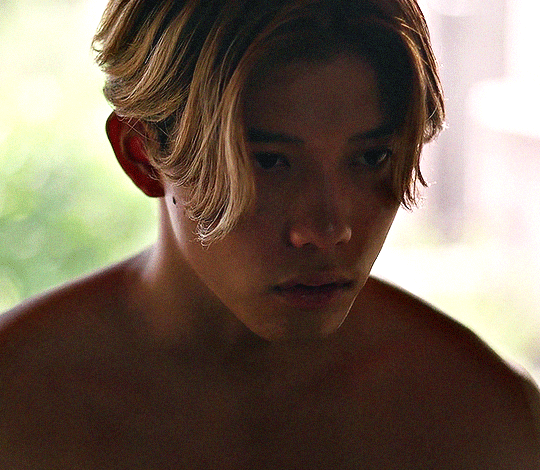
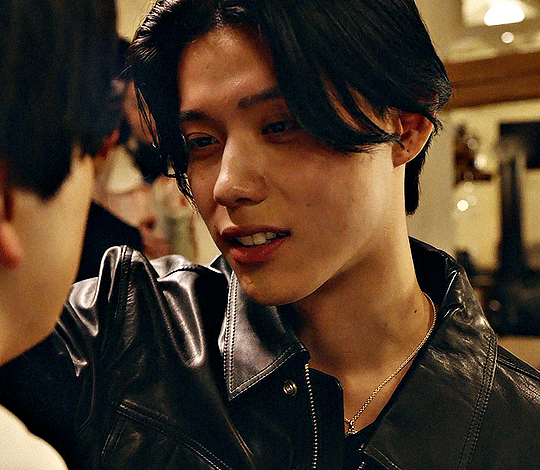
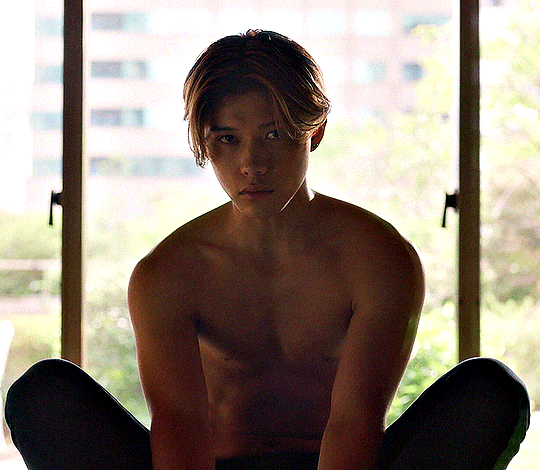
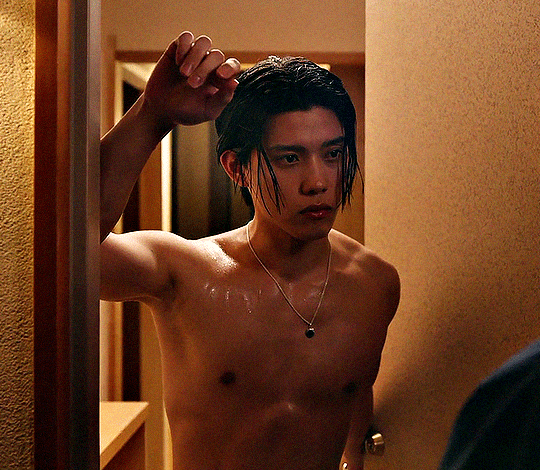
Nagumo Shoma I Sun☀️& Moon🌑
KISS X KISS X KISS: Love ii Shower (2023) AT 25:00 IN AKASAKA (2024)
#kiss x kiss x kiss#kiss x kiss x kiss love ii shower#at 25:00 in akasaka#25 ji akasaka de#jdrama#jdramasource#userrlaura#uservix#userlera#userharu#userfaiza#moonlightsdream#asiandramanet#asiandramasource#nagumo shoma#which one do you prefer? both! both are good#he's slaying both looks#also the difference in attitude: kazuma is confident in everything he does and naoki seems to be on the verge of tears constantly#im obsessed with him if you can't tell#and i love how much these both characters contrast each other hence.... sun and moon#mywork
425 notes
·
View notes
Note
I want to know why were the Infran powers that were chosen? (Life, Death, Water, the Moon, Fire, Knowledge, Time, and Blood) Also I think it’s cool that some contrast each other like life & death and fire & water. But some don’t like there’s moon but no sun? 🤔 Also why are there 8 Infran but only 7 protagonists?
There were a few different reasons that went into selecting the ones I wanted! I can't go into all of them because some would be spoilers for much later on in uh, the Series, but I'll tell you what I can and what I remember from when I was picking 'em (everything was like solidified by 2016 so it's been a while, as you can imagine)
I knew I didn't want something that was just elemental, hence moving away from more than just Water / Fire and like. I was also drawn to wanting to build concepts for unique power sets; I feel like so often 'nature' powers is just "person A can control plants and that's about it," so building the Infran of Life's powers off the idea of Connection was a lot more freeing to me, allowing for some cool stuff you maybe wouldn't necessarily expect to be on the table.
I also kind of developed stuff in the ideas of contrarian pairs to a degree (Life vs Death, Time erodes Knowledge, Moon vs Fire/Sun, Water vs Blood in terms of family dynamics, etc).
For example, I knew my main two characters -- Ally and Jamie, otherwise known as the twins -- were going to be Life and Death respectively, reflecting the way they're both very different and very similar simultaneously, but often have an argumentative and difficult time with each other in spite of how much they love each other.
Your question about Moon with no Sun is actually a long-ranging debate in-universe, as Infrans have had different names (I imagine there's been some Infrans of the Sun > Fire for example) in different periods in time / cultures / and languages. I'd imagine one of my northern peoples would call the Infran of Death the Infran of Mercy, for example, instead
And the Infran we're 'missing' from the main cast is the Infran of Blood. I won't say too much more (though his character tag is kicking around here for admittedly minimal perusal) but here's our first real mention of him from the story! (This is 14 pages in so it's not too spoilery, y'know?). He's currently a lot older than the rest of his Infran generation by close to 20 years, but we get into why later
“Since George and I just have dreams,” Rayan continued, scanning the next page. “That means—” “About four of us should have counsel for an even split?” Counsel was coveted, more sought after than dream memories because it was more direct. You could actually talk to your past lives rather than just deciphering cryptic clues from glimpses of eras gone by. Rayan nodded. “Three of us,” he corrected. Because they were seven out of eight. Right. Nobody knew what Glothic of Kilvoskia had; he’d left before the Order could Claim or train him. Maybe he was so twisted his past lives were ghosts, his dreams nightmares he revelled in. It was horrible, but she couldn’t quite tamp down the pang of envy that well—he had something. Anything.
#FAQ#worldbuilding#word of god#thanks for asking#writeblr#anyone can ask questions about anything#and feel free to come off anon if you'd like <3
7 notes
·
View notes
Note
Hi!😍How are you? Can i get a ship with Ateez? I'm capricorn sun, venus and mercury, gemini moon, sagittarius rising and pisces mars. Thank you so much 🙏🤩
I’m good! You’re a capricorn sun with a gemini moon, these two placements make an intellectual power source. The intellect and capability of utilizing your brain and details is impeccable, and with cap sun when you put it to work, there will be success with the effort/hardwork you attempt. Capricorn mercury, you keep it real. Rather than a brutal honest way to your communication, you are more stating things matter of factly in a honest way, but kinda chill yknow. If virgo mercuries were more of a fact and organzied direct speaker, you would be similar to that but in a more chill way like you’re only being realistic, not critical. Capricorn venus seem to rather show off their love to their partner theough hardwork and presenting the notion that they are responsible and trustworthy in that aspect. They care a great deal about their close ones/loved ones, but not usually in an affectionate physical displaying mannerism. Lastly, your pisces mars indicates you may easily be sensitive at times, and can be more on the whimsical outlook towards your goals. However with your other earthy placements, you are not too wishy-washy. Sag rising prompts others to view you at first to be optimistic or an exuberant vibe. Sagittarius is ruled by jupiter, the planet that is ruler of prosperity, expansion, good fortune (luck). These aspects may be projected to your outer appearance, so you may seem more youthful or healthy, and you view the world in an openminded positive way sometimes.
In Ateez... your match is Seonghwa!
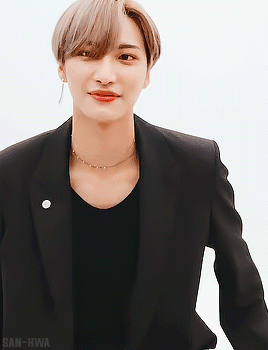
Momhwa here has a motherly side and a strict honest side. I think the dynamics between you two are similar yet balanced in a way where you both share different perspectives that can benefit each other~ Seonghwa’s sun is in aries, and these individuals are determined, honest, and morally inclined. You can definitely see his passion when he dances or his facial expression during performances, and despite his soft disposition at times, he can be quite the savage person if needed. His moon is in cancer and I will elaborate further in the next paragraph, but since his moon sign is in this placement, that is why he is sensitive yet very compassionate or able to understand others (in a motherly way as seen to Ateez). These two placements create a a nice parallel to each other. Similarly, you seem to have two parallels within you, you can be quite the dilligent, responsible person when you need to, the student that does well when they do their work, but with your gemini moon you could be prone to many new thoughts occurring that may cause you to be flighty in your duties at times: hence the student that may be smart but not exactly labeled as the teacher’s pet. You don’t wanna bore yourself of only study and academics, you still retain fun within while enjoying your intellect. Seonghwa thought you were interesting, how you could show such a sunny disposition (child-like expressions) of the world yet retain a serious practical side when you decided to do so, a side that heavily appealed to the natural caretaker and responsible one of Ateez, Seonghwa.
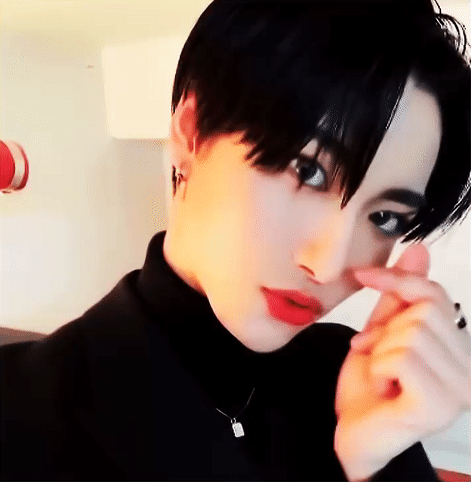
Now to the elaboration of his cancer moon. Cancer moons are quite the baby of the water sign family in the moon aspect, as the moon is the ruler of cancer the zodiac sign, thus this aspect naturally is more powerful or at home within this position. Seonghwa is empathetic, has a lot of emotions (inherently sensitive), and has a lot to give to others emotionally (as a supportive pillar). These traits make Seonghwa more of a little compassionate fluffball despite his other contrasting personality traits (cough cough Seonghwa is duality, Duality is Seonghwa). Your gemini moon on the other hand is less emotionally inclined, I would say you may not display your emotions or discuss deep topics on how you feel, but it doesn’t mean you are insensitive. You deal with your emotions and feel them in a different way, you may feel easily overwhelmed or change how you feel right after experiencing a new resolve. Seonghwa loves your new fresh perspective, how you come up with new ideas or brightly display your thoughts of knowledge of your favorite interests. Seeing that beaming smile just makes Seonghwa go heart eyes ya know~ I think with Seonghwa, you feel like you can be more comfortable in confiding your emotions as Seonghwa would not judge you and he would listen to your little worries or temporary thoughts of complaints on a bad day. It is something balancing that you both would feel soothed and healing within.
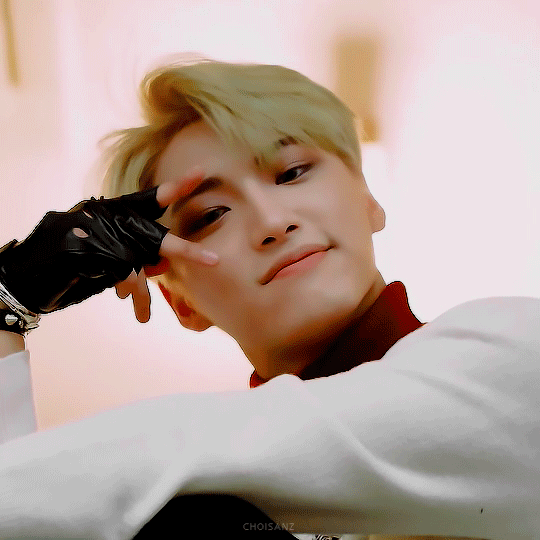
Seonghwa’s mercury is in aries! These natives are honest and not keen on hiding the truth, they desire the truth back to them as well. As you can see, Seonghwa is pretty strict such as cleaning or nagging the members to clean, puck up stuff, and to take care of stuff. Aries mercury inherently are just very true to themselves and if there’s something they want to say, they will say it but it’s not purposely directed to tear down or hurt others. With your capricorn mercury, you are similar in the fact you wanna keep it real as well, hence you both have similar values in communication-wise. Seonghwa will find himself agreeing and working well with your unfiltered communication, as you both aren’t afraid to say or give your opinion towards others and each other.
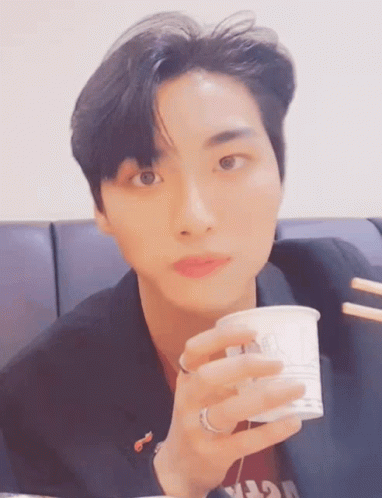
Next, Seonghwa’s venus is in aquarius. With your capricorn venus, these two will seem like an odd match of love styles but complements each other well. Capricorn venus like to show they are capable and not too dependent, similarly venus aquarius like to show how different they are from others, a rebel at heart, charming others with their cool detachment. However, you both value your privacy or are not usually very expressive in physical affection, however you both have a mutual understanding of reasoning and thinking. Seonghwa may appreciate your independency and admire ur outward approaches, likewise you may appreciate Seonghwa’s logicality or problem solving attitude in a situation. These placements give me two badass anime characters who fell in love with each other, and are each others partner in crime and lover.

Lastly, his mars is in aries! Direct, pursuing, and passionate about the things he love, goals and aspirations, it is also evident in his love style. He is direct in how he wants to approach you, and rlly has heart eyes a lot and with prominent aries energy he may initiate more physical contact but ofc nothing that crosses the boundary if you dislike it. Your mars pisces is someone who wants someone to guide them or despite your earth signs not very vocal about intimacy, you crave for some emotional bond and affection still. Which Seonghwa can give :3
Overall, you two are the ones that are independent and internally strong but are really just little soft marshmallows that wanna cuddle with each other, but you two maintain a cool face while you do so. You two have an underlying softness in your compassion and love for other and each other, yet you don’t lose your reasoning/logical sense of self from it. You two are balanced very well and I k I said that too much lol 😂 You two radiate -> 🍓🌹💌📝💕🌿☘️🌓🍟
6 notes
·
View notes
Text
If you told me even last year that 2020 would reignite the Twilight and The Hunger Games fandoms, I would have thought you were joking.
With the announcement of Midnight Sun (tbh I wish it had been The Host 2) and the release of The Ballad of Songbirds and Snakes, I got to thinking. Memories from my high school years started resurfacing. Going to midnight premiers, reading the books, fangirling with friends over the characters. I started remembering my two best friends at the time, our sleepovers, our hangouts, mid night movie premiers and all the other moments we shared for years.
It’s weird thinking back on those moments, since we’re no longer the best friends we used to be. It’s also kind of sad, and probably a reason why I wasn’t super excited when the news for Midnight Sun first dropped. It’s hard to be super excited for something that you initially shared with two important people at such a formative time in our lives.
My friends that I shared Twilight and Hunger Games with – (I’m going to call them “L” and “K” since they asked me to not use their names but gave me permission to use some photos) – were two of the first people to befriend me when I moved to the states. We grew close quickly and did everything with each other. Unfortunately, we rarely talk anymore, and have grown apart and I think it’s sad and I really wish we hadn’t. But, we’re not here to discuss how friendships can end. We’re here to reminisce about an era that define so many of us, jumpstarted the YA genre as we know it, and brought so many people together.

So, let’s start with Twilight, since that was popular before Hunger Games.
Twilight was such a formative part of my journey into reading the way I do now. But it wasn’t always. I first heard a friend talking about it in 8th grade. I think that was the first year it really started to gain traction and popularity despite being out for 2 years. I’m pretty sure we were sitting in a US history class, and she was telling me all about this vampire book she was reading, how good it was, and how I should read it.
I turned my nose up at the mention of ‘vampire’ and I’m pretty sure I told her that I wouldn’t read a stupid vampire book.
Boy did I ever eat my own words.
I don’t remember what exactly prompted me to finally pick up Twilight, but I was in 9th grade, it was a long Halloween weekend, and I binge read the entire series. I had my dad make multiple trips to Barnes and Nobles (thankfully there is one right across the street!) to buy each next book, and by the time I was back in school, I’d downed the whole series.
I don’t really remember how my two friends got into the books, I vaguely remember convincing L, and we would go to her house, put a DiGiorno Cheese Stuffed Crust Pizza in her oven, and sit on the floor of her kitchen reading. As for K, I don’t remember how she got into the series, whether it was me, or she picked it up on her own. When we were best friends, she was an avid reader, so she might’ve found it herself. But we bonded and became closer through our love (borderline obsession) with the series. I remember going over to their houses and we would just sit and read the books. We’d print off pictures of the cast from various photo shoots and tape them to our walls. Probably like most teenage girls, we quickly became obsessed. K had this puffy makeup brush that had glitter in the handle, and we’d brush that fine sparkly glitter all over ourselves. At one point, I even swapped out my shampoo for a strawberry scented one.
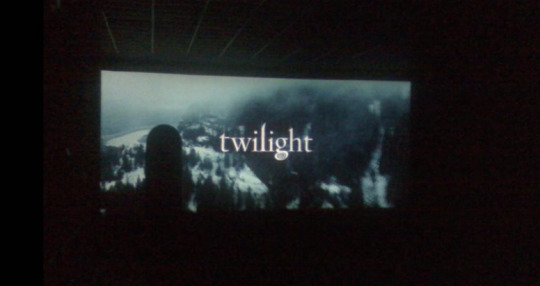
Then the movies started coming out. We always bought our tickets early – I still have all of mine. L, K and I made t-shirts for the first two Twilight movies…okay my mom made them since we just used iron on paper and put pictures of the cast on the front and a quote on the back. We arrived at movie theaters, like 2 hours early to guarantee us good seats – this was before reserved seating, and before 5PM showings the day before, became the new midnight premiers.
We would have photo shoots in the movie theater halls. We would get there so early that they wouldn’t have a designated area for a line, and we were always first. We’d goof off and talk excitedly about the movie.
We were Twihards and we were about to see the movie version of our favorite books. I unfortunately only have 1 photo from the Twilight Premier due to an external hard drive accident in 2010. I’m bummed that any photos we took together were lost, but we more than made up for it at the New Moon premier.
At some point in our Twilight crazed days, K ended up with an Edward doll that would sit on her bookshelf next to a brown paper wolf. My bedroom walls were covered in posters, magazine clippings, and L’s bedroom walls had some drawings a different friend did of the cast. I showed them both HillyWood’s Twilight Parodies (if you haven’t seen them yet, you’re missing out) and we fell deeper into the franchise. Honestly, I don’t want to know wha I spent on Twilight Merch.
Where you Team Edward, or Team Jacob?
I was solidly Team Jacob – I definitely had a crush on Taylor Lautner when I was younger. Though I think I’d prefer to be a vamp if it came down to it. The movies came out each fall of High School, with the final one coming out my first semester of college. That plot twist in the final one – yeah, the whole theater erupted. We would make count downs in our agenda books for the premier. It’s been quite a few years since then, so I don’t remember as much, but my friends and I went and saw all of the premiers – or tried to. We were all at different colleges for the last one, so that made things a little difficult.
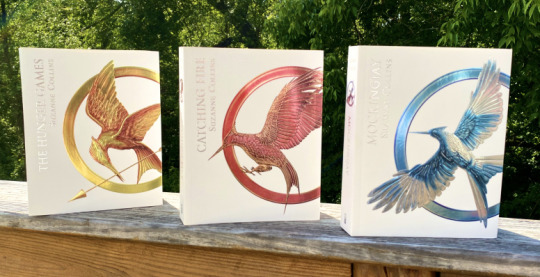
While the Twilight movies were still being released, another series gained popularity. The Hunger Games! I read THG in 2012 and fell in love with the series. It’s another one that I binge read in a weekend. I don’t remember if L and K were as into THG as I was, but I’m a massive sucker for science fiction/dystopian books. So, I devoured this trilogy and fell in love with it.
My memories for this series aren’t as engrained or easy to dig up. These books came to me right as I was finishing high school and the movies premiered while I was in college. While I definitely was swept up in the phenomena that this series created, i didn’t have the same bonding experience with it, with friends. at least not in the way I did with Twilight.
Friends went with me to the premiers – another friend, we’ll call her A, went with me. It was midnight on a school night, she had just performed in a theater production for our high school (hence the face pain in the photo). I think we left that theater around 2 and had to be at school by 7:15am the next morning. That Friday was rough. Really rough. We wore shirts that we had made to the premier – this was back in the days were I actually used puffy paint to design various shirts.
At this point my walls were void of Twilight and had been taken over by new posters. I had the Katniss and Gale posters. Katniss hung on my bedroom door, and Gale hung by my bed. Please don’t judge me lol. I had a few other posters as well. I even taught myself how to French braid, so I could learn how to Dutch braid, just to be able to do Katniss’ braid. I have a mockingjay pin and was even Katniss one year handing out candy. I very well might’ve been more obsessed with THG than Twilight. God, I wanted to be Katniss so badly.
And fun fact, the location set for District 12 in the first movie is in North Carolina – when he was a kid, my grandfather used to go there and play/hang out with friends. Some details of my recollection of his story might be off, but he knew the location that they shot at because he’d been there as a child, having grown up in North Carolina.
Where you Team Peeta or Team Gale?
I had a massive crush on Liam Hemsworth, so I was Team Gale. Now I’m solidly Team Peeta, but younger me was dumb. Peeta is obviously the superior choice, but damn if I don’t still find Liam attractive LOL.
What can I say?
I remember the excitement for each new movie – when the trailers dropped, the new movie posters. I even did portraits of Katniss, Gale and Peeta for a Senior Art Project in high school. My teacher liked it so much that she put it on display for the Senior Art Wall. I had to explain to her multiples times who the faces belonged to, but she liked the study of light and contrast.
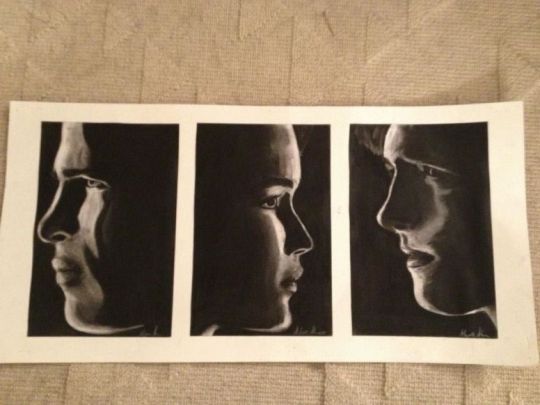
2008-2015 was the time of YA adaptations. Between Twilight, Hunger Games, Divergent, Maze Runner, etc. book nerds had the pick of what they could be obsessed with.
With the release and upcoming release of these two books, it brought back a bunch of memories. Fond memories of good times with friends. Hell, simpler times. There was a different energy back then, everyone came together for a series of books – both were household names. You might not have read the books, but chances were you knew someone who had. I miss the energy of midnight premiers and walking into to school to gush about the series with your friends.
Oaky…maybe not so much the school part but seeing your friends every day.
We get the occasional movie adaptation, or tv show, but there really isn’t that same energy that filled everyone. There really hasn’t been this collective phenomenon since the days of YA dystopia adaptations. I think we’re high time due a resurgence. Vamps are coming back to the genre, outside of this new Twilight book, so, maybe!
I haven’t quite made up my mind if I’m going to read either of these two new releases. I’m kind of over Twilight and don’t really have any desire to revisit it. I’ll forever be grateful for what it did for the YA genre, but I kinda just want to leave my memories as they are. I don’t want to inadvertently tarnish them.
As for the new THG book, I have like zero desire to read about Snow, but people have been really enjoying it, so maybe one day in the future.
So, this post is incredibly long, and if you’ve made it this far, thank you for sticking it out. I guess I got a little lost in remembering good times. It’s funny, I started this post on Tuesday and sat down to write it. I didn’t expect it to be hard or this time consuming. I texted L and K to see if they were okay with me using photos and I actually chatted with K for the first time in a year, maybe? I’d be lying if I said I didn’t really miss them. I miss just being able to talk with them. Then, that night I had a dream that we had gotten together to reminisce about our Twilight days, and when I woke up, I was so disoriented. It felt so real, and then I was in an emotional funk for the rest of the day. But now, it’s taken me hours longer than I thought it would to do this post, due to getting lost down memory lane.
Writing this post was a lot of fun, despite some of the bumps I hit along the way. I think it’s interesting to look back and see where we were when Twilight and/or Hunger Games was a part of our lives. For the most part, it seems like it was a huge part of most readers lives. So, here’s my request to you – think of this whole post as an unofficial tag “tag”- if you feel inclined, share your memories/a memory of how either of these series were a part of your life!
Did you go to premiers? Whose Team were you on? etc.
There are no formal questions – so just write and share whatever you feel like.
I “tag” whoever wants to do this Nostalgia post – and if you do this, please let me know! I’d love to read your posts, see your memories if you include pictures. Let’s reminisce about vampires, werewolves and two tributes who would rather eat berries than be entertainment for the rich.
Nostalgia – Twilight & The Hunger Games Unofficial Tag - what are your memories? #newpost #blogpost #bookpost #bookblog #books #blog #blogger #bloggerswanted #bloggerstribe #bloggingcommunity #bookish If you told me even last year that 2020 would reignite the Twilight and The Hunger Games fandoms, I would have thought you were joking.
0 notes
Text
A monster is a person in your neighborhood: Satire vs. acceptance on Sesame Street= Netzach/Hod She b Malchut
Super-hero cartoons are arguably as rooted in gangster literature and media as they are in any epic heroic tradition. It's only very recently that there's been a move to return Star Heroes to military legitimacy, as The Avengers become an official S.H.I.E.L.D project... we'll see how long that moment lasts. Because since World War II, the super-heroes have tended strongly to be identified exclusively as private citizens, defined by, if not their hostility to government, a certain amount of government distance from them, manifest as either fear/hostility, or dependence, as in the case of Iron Man, or Superman or Batman. None of them are government stooges, or instruments, but the local or national state tends to come to them in need of help with some regularity.
The relationship between the state-- Malchuth and the heroes-- Zeer Anpin, is fraught with tension, as is the way of serious long term relationships. One is the stability, the other is the agent of justification. One just wants to serve, the other just wants to feel good, safe. Gangster literature is what, in many ways, first developed this relationship in the context of the modern city itself. The functional agency of drawing and circulating satisfaction vs. the frustrating maternal Law, defending some kind of innocence at the expense of functionality-- the end of the story is a covenant drawn between the two, making them agent facilitators of each other. It's like every good marriage, until it falls apart perish forbid. The distinction between one and the other demands mediation, and a third emerges naturally in the polarity between the two: The infant is to become the Tzaddik. Trusted somehow by all, and ultimately the most vulnerable, his/her death is the epic tragedy that lets everything fall apart.
Gangsters, like babies and deities, are folk heroes stripped of the conceit of altruism. What their most selfish values begin to describe are the truest essential concerns of any individual, and any nobility, loyalty, or pragmatic intelligence they express become relatively ennobled, and their folly is only that of the most traditional of ruined heroes: hubris, intoxication, and foolish obliviousness to the consequence of their failed confidence. Scarface dies much like Achilles and Balder, once they've climbed to the top of the world to become the most beloved and feared of the gods, a war god and a sun god all at once-- that's when it's over. A failed hero is the beginning of all cautionary example.
What is Count Dracula if not another of these failed heroes, but cursed with unending success? See the ultimate horror of Dracula in the later films-- frustrated by the nature of what he is, yearning so great that satisfaction and victory cannot satisfy? The vampire hero, redeemed, must overcome even the yearning for satisfaction in order to become profoundly trustworthy. You'll observe, this is also the lesson that creates Spider-man, Thor, Hulk, Iron Man, Wolverine, and many other Marvel heroes: only by giving up on personal satisfaction, be it in the form of love, revenge, wealth, or even divinity-- can they become what's trusted as a hero, and then they can overpower anything and everything, even death itself.
Frank Miller's neo-pulp heroes in Sin City take this a step further, rejecting even the appearance of even nobility itself in order to be heroes, and Chris Nolan's Batman is very influenced by Miller's version of gritty austere virtue-beyond-beauty. Here is the point where a Pop/super-hero remains distinct: he does not have to ever, give up his integrity. Pulp heroes, later day post modern comic icons, like John Constantine, Wolverine or any of the Warren Ellis Authority indy heroes outside of the mainstream mold. Their virtue is, partially, willingness to step past even needing to feel whole about their actions in order to do what needs doing. This is why Garth Ennis ultimately prefers to write war comics: that pragmatism is taken as a given, and the super heroic idealism is understood as a decadent privilege, at best.
Super-heroism rages, by it's nature against this criticism. This is most overtly expressed in Joe Kelly's Superman vs. the Elite storyline, notably adapted to animation in 2012. Don't call it naïve, don't call it juvenile-- call it simple, elementary, iconic. The hope of approaching moral depth and the implied darkness accepted in that is more resonant and literary, but betrays the purity that the heart yearns for from it's mythology. Maybe i'm exaggerating-- traditional religion and mythology tends to accept, even embrace, moral relativism and the challenge of dark nature and betrayal of ideals as a certain form of ideal-- but as civilization becomes more sophisticated and self aware, the antidote demands to be more pure, hence the progressively more senseless and emotionally immature nature of super-modern pop music, during any era that should be finding depth and collective appreciation of that capacity to acknowledge the disturbing range of what's clear about being a person, all the more so does the simplest, most even offensively naïve of narratives become resonant. Witness the victory of Christianity over both Roman paganism, Norse Aesir worship and folk Gnosticism-- why did the cruelest of all empires go with the religion that ultimately, theologically, justified its excesses the least? Because they needed the purest of purification to move on and be the kind of bad they were going to become from then on, in order to rule themselves all.
This is the degree to which satirical anti-heroes are central to the maturity of a culture. But once satirized effectively enough they can no longer be national icons-- they must either respond to the satire, and become better and more whole mythic heroes, like Krishna after Buddha, or Elijah after The New Testament critique of his fiery piety in the tale of the good samaritan. The choice becomes ironic pandering, ignoring the critique in search of more naïve audience, or better yet, some sophisticated refinement of character, and ideally a mythic defeat of the criticism. In this, the hero's ideals themselves defeat the villain embodying the critique. This is much of where the Batman vs. Joker conflict has gone in recent super-modernity, where Batman's commitment to protecting, or at least not killing, the monstrous grizzly and willfully chaotic murderer is justified as an ideological triumph-- not defined as a virtue by dint of dated calvinist “commitment to ideal”-- because no one respects that kind of ideological commitment as being authentically virtuous anymore. The triumph instead has been defined in specific contrast to the Joker's preference-- the Joker would like Batman to kill him, ostensibly, because that would prove the virtue of killing problems, and by NOT killing him, Batman proves his virtue and commitment to the legal process, in some strange sense, which strips batman of the danger of being a social terror.
The real reason for this hang-up is much more narratively practical-- the villain is too precious to kill off. The Joker, like almost every other villain of grace and note, is divinized by his meaningfulness. He was actually killed off in his second appearance, but to no avail-- the editors commanded the writers to find a way to bring him back to life only a short time later, and so it has been his practice ever since, much like Dracula or Moriarty.
The degree to which villains are different than monsters is the degree to which there is no reward in slaying villains-- only an end to the great narrative. Monsters, on the other hand, must be slain, as this is the original sin of demonization-- insisting that violent annihilation is the only solution to the needs of another “human.” A villain is preferred to be captured, and maintained in controlled captivity. This mystic clarity about the reincarnation of the slain enemy into distant freedom, as opposed to the power of sacred captivity, to keep one's enemy close, accessible, and monitored, like the very id itself. As indestructible and precious as the self itself, the moral of the story is Overcome, but never destroy.
Dracula's special and refined thirst is for the Moon, the untouched mother-- and his slave wife is the Venus, although the point where they meet is close. The early evening- But Venus is his weapon, while the Moon, ultimately, is his weakness, what gets him killed, even as much as he lives from nursing at it's behest and it's throat. This is the secret of the two “ה"'s in the four letter tetragrammaton “YHWH”.
One of the profound psychological innovations of Sesame Street is to reclaim the monstrous as synonymous with the human, thus overcoming at the most viceral and accesible level untold generations of demonization. Where traditionally Dracula and all the monsters represent the repressed and feared aspects of basic hungry humanity (“hell is other people”) Sesame Street takes Dracula and reframes his hunger as simple passion for the abstract and inherently unlimited satisfaction of numbers themselves. Whereas Count Dracula himself is the first amongst modern pop-monsters, The Count falls parralel to the sephira of Hod, sensetivity and co-dependance, the aspect of the god who gives numbers to the stars already created, unthreatening, although perhaps slightly nagging tho graceful and charming. Contrast this with the muppet I would consider his opposite number in rank and value, the Cookie Monster, who I would consider an expression of Netzach/Dominance, his hunger unavoidable and creepingly inquisitive, his pallette insatiable although still somehow respectful of some kind of engagement and personal limit in the context of personal need, reflected in his rectification as a vegetable eater who just appreciates the cookies as a “sometimes food,” even as his monstrous appetite remains intact. The villification of Venus/Innana is that of an insatiable lover who does not care much at all, but cannot long be resisted, or even resented, as the defeated visage of Ernie-without-cookies testifies.
A monster is just another person in the neighborhood; a reflection of our own normal needs and hungers, respected, honored, and safely sociably satisfied. Grouches and Satyrs are just themselves, and honored for and despite this-- what more radical message can civilization aspire to offer? This is, ultimately the great difference between Babylonia and Egypt: Egypt sought not (generally) to assimilate it's monsters and enemies, although there were periods where the Sethian was more integrated-- the foreign was somewhat inherently anathema-- and this nativist impulse endured until the Greeks overcame it, as was the nature of Greeks, to overcome nativisms with a glorious and all-consuming universalism. Rome's innovation was just to weaponize the Greek syncretic clarity, and apply it more aggressively, taking it's perfection for granted as much as was reliable. Once, to end wars within an empire, polytheistic pantheons were assembled, as a kind of a symbolic senate of the different priorities of different city-states within an empire. Egypt may have innovated this, if Babylon did not, it doesn't matter. Babylon's aspiration was not just to be an empire, but to be a great city, where things worked-- and it became clear that unless there was co-identification, and cathartic expression, of the different elements within their society, there would be conflict. The great Babylonian epic of Gilgamesh reflects this ambivalence, between the slaying of monsters and their integration and the acknowledgement of their humanity. The hero starts the story as a hated villain, an oppressive king resented by the populace he rules. A hero from outside of civilization comes to confront and slay him, this force of cruel and selfish modernity-- but instead, thanks to the intervention of certain gods, they become friends instead, and go on an adventure to slay another more monstrous monster. This conflict is greatly debated and engaged, before and after, and leads to conflict with greater forces, goddess and her pet cosmic bull. Our heroes slay the cosmic bull, and for this, one of them must die. A similar narrative is kept by the Greeks, when Kadmos slays the wrong dragon, the beloved of Hera, and so must lose his beloved sister Europa, forever. The moral is clear-- the more you can integrate, and not kill, the less threatened you will be. This is the purest moral of all civilization.
Sesame Street is in the unique summit between commercial and civil. Concieved, unlike most pop-cartoons, not for profit but for some kind of educational, civic or edifying purpose, specifically bound up in the grand project of universal education for all children, its excesses as far as violence and indulgence of children's affection for sugar and noise compel parental forgiveness and toleration, in light of the hope that the kids would enjoy this educational pop-media over less trustworthy and more commercially pandering tv shows. In it's early episodes, it could get away with a lot as far as puppet violence and questionable exploration of tantalization and titillation of kindergardeners, as it at least had positive tacit integrationist and educational function, about the nature and character of assorted letters and numbers(!). Once Sesame Street became established and somewhat universally successful, and thus, functionally institutionalized, it also became more sensitive to moral criticism, and able to be overtly responsible for the values and graces it would introduce, rather than assume were already part of children's paradigma. Cookie Monster introduces children to consumption, rather than just satirizing a hunger already observed, and becomes a certain kind of role model, now responsible to amend his own nature, so that the lesson of moral clarification become the implied arc of his journey, even as older episodes exist only in archive, except of course for classic routines, which are continually re-integrated into new episodes. The earliest Ernie and Bert routines remain in circulation and translation forever, because they are so fundamental and accessible-- a good omen for pop-longevity. Many classic figures are integrated into Sesame Street, but eventually used less and less because what they meant historically becomes less and less relevant. I was introduced to the character of Charlie Chaplin's “Tramp” in the context of Sesame Street, but they don't use even the Maria who played him so much anymore. Instead, is Mr. Noodles, the incompetent mime in Elmo's world who children joyfully correct as he manically tries to complete the most rudimentary of tasks, to no avail, until the advice of a quorum of offscreen children are able to get through to him, with the help of Elmo's omniscient voice. Elmo is the aspect of Malchus, in that he became the main character of Sesame Street, despite being a later addition to the cast. He is a monster child, like the once central Grover, but unlike Grover or Chaplin, he is defined by his absolute competence. His lessons are those learned after doing everything right, not wrong. He is the aspect of the wise child, not the fool, and so he is given an entire third of every episode of the final few seasons of Sesame Street-- until he himself, that is, the actor who played Elmo exclusively, was implicated in the hubris of the successful, and the good name of all that Elmo and Sesame Street are associated with became suddenly embedded in sexual impropriety. Such is the downfall of kings, specifically: fear of their appetites and preferences, because of their absolute power.
Sesame Street is too big to end because of an underage gay sex scandal or two, but not too big to need to be a bit castrated because of it. Pop-cartoons depend on grace, and the impression of trustworthiness
before both parents and children. As cool as we all want to be with what actors do on their own time, it was a bit more of a problem with Sesame Street, because the actors, especially in the case of Elmo, are so deeply and truly associated with the show itself. Not since Jim Henson himself was alive and available to make Kermit the Frog a celebrity, available for interview and all manner of guest appearance, was a character so genuinely and improvisably identifiable with the actor giving him voice.
It's not that “we” found out that Elmo himself was a chubby older black man with a thing for 17 year old men, it's that Elmo is such a naked expression of erotic power male power, easily identifiable as kind of Libyan Satyr; a naked, red wildman. Identifying THAT cartoon Id with an actual person, might just be a little hard to reconcile for long. So they appear to be phasing him out a bit, making the Elmo's world segments less personal and more theatrical, so that the distance of seeing him as more of a stage muppet that an intimate and eponymous pop force, like the great god Pan himself, kept alive only in Elizabethean chains, taken from the wild forest onto the city stage. A smaller King Kong is a loveable King Kong, unless and until he creeps you out. Then what're you gonna do?
The Sesame Muppets are monsters of the greatest virtue. They will not eat you, and don't even have to promise not to; the question dare not come up. They want to share and play responsibly, learn and help us learn. In this, they are a tikkun on the respective terrors and traditional issues with their respective forms. The Great Eagle, the “Big Bird,” hangs over looking patronizingly down for prey-- but Big Bird on Sesame Street is utterly without guile or threat, taking as much responsibility for whatever goes on as is possible, in his dreamy ignorance. This is the level of the great dove, divinity herself, rather than the predatory eagle or trickster raven-- the hawk coming to bring things to you, rather that to eat the eyes out of your head. Dracula is reduced to counting passionately only numbers and not bride-victims. The unconquerable hunger behind Dracula, the oceanic kraken come asurface, hungers only for cookies. Grover is something tragic, a hero partially defined by his constant failure. Through him, children learn the grace in not being good at something, and still trying because you care, and the effort is cute. But Elmo informs of the possibility of being inherently right at everything, and STILL being cute, and this is the different between the Messiah of Joseph and the Messiah of David. This is one of the strongest subplots in the old testament, and endures through the entire post Pentateuch bible, when the kingdoms of David and Ephraim (Joseph's son) literally split because of conflicting priorities. Modern scholarship identifies these two voices as representing conflicting political priorities involved in the bible's construction, Kabbalistic tradition prefers to assume that it's an internal expression of fundamentally complementary models. Joseph, identified with the sphere of Yesod, is identified with unyielding righteousness, and keeping of rules. He must die and fail at some point, if not in every generation, to make the point of the limitation of perfection in this world. The Davidic model, introduced in his forefather Judah, for whom the Jews are named, is about the triumph of earnest imperfection, bound up in a will to constantly do better, in a manner unbound by law or principle, although still beholden to the purpose and meaning of law and principle, and whose life, triumph and clarity can only come after being built by adherence to law and principle. The Davidic Messiah is the one who brings clarity to true purpose and divinity into the already formed Josephean structure. As such, he never dies, and cannot fail, but can only be disgraced into some degree of dismissal, as was the way with Elmo and King Solomon.
2 notes
·
View notes